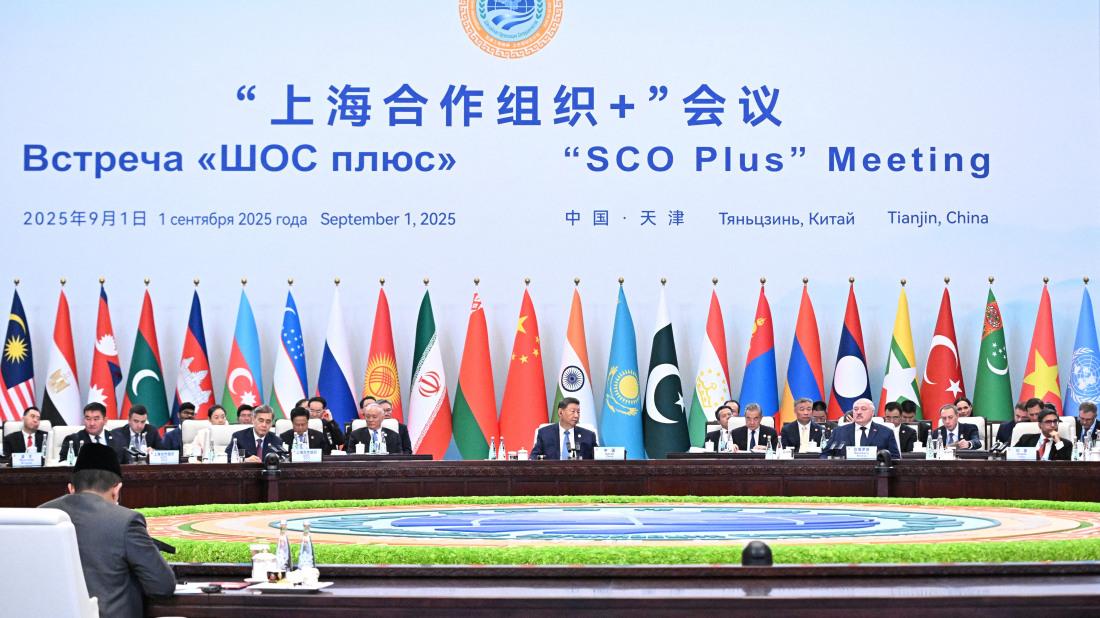Two killed in Israeli attack on first day of Ramadan in Gaza
Two Palestinians were killed on the first day of Ramadan after Israeli forces opened fire in the Gaza Strip, according to local sources and hospital o...

As leaders from across the region gather in China for the Shanghai Cooperation Organization summit (SCO), Georgia is notably absent. While Azerbaijan and Armenia strengthen ties with global powers, Georgia stays on the sidelines despite being an official strategic partner of Beijing.
Prime Minister Irakli Kobakhidze responded to questions about this absence, stressing that the parade in China was part of the SCO framework and that attendance should not be overinterpreted. He underlined that cooperation with Beijing is a priority, calling the China–Georgia strategic partnership “precious and important,” and promising new steps to strengthen it politically and economically.
But China is only one side of Georgia’s global partnership web. On the other side lies the United States—where relations have cooled in recent years. Echoing the President’s appeal, Kobakhidze voiced the government’s desire to restart ties with Washington “from a clean slate,” presenting a roadmap for renewed cooperation. He noted that the lack of attention from the Trump administration was “surprising,” suggesting it may reflect the influence of what he called the “Deep State.” Still, he insisted that if this influence does not prevail, nothing would prevent the revival of the strategic partnership.
It is worth noting that this appeal comes against the backdrop of Georgia’s two neighbours in the South Caucasus, Azerbaijan and Armenia, having taken steps to upgrade their respective relations with the United States. On 8 August, Azerbaijan and the US signed a Memorandum of Understanding aimed at developing a Strategic Partnership Charter, while Armenia concluded new agreements that build upon existing bilateral arrangements.
The picture that emerges is a Georgia caught between two global poles—seeking to protect its bond with China while struggling to reanimate its once-vital alliance with the U.S. In the meantime, as regional neighbours deepen their own ties with great powers, Tbilisi faces growing questions over whether this pause in partnerships leaves the country isolated, and how that isolation could shape both its foreign policy and domestic political debates.
Cuba’s fuel crisis has turned into a waste crisis, with rubbish piling up on most street corners in Havana as many collection trucks lack enough petrol to operate.
Ruben Vardanyan has been sentenced to 20 years in prison by the Baku Military Court after being found guilty of a series of offences including war crimes, terrorism and crimes against humanity.
Canadian Prime Minister, Mark Carney, announced on 16 February that the Honourable Janice Charette has been appointed as the next Chief Trade Negotiator to the United States. She's been tasked with overseeing the upcoming review of the Canada-United States-Mexico Agreement (CUSMA).
The Pentagon has threatened to designate artificial intelligence firm Anthropic as a “supply chain risk” amid a dispute over the military use of its Claude AI model, according to a report published Monday.
Israeli airstrikes on southern Lebanon killed two people in 12 hours, Lebanon’s Health Ministry said on Tuesday.
Two Palestinians were killed on the first day of Ramadan after Israeli forces opened fire in the Gaza Strip, according to local sources and hospital officials.
British Steel has secured a multi-million-pound order to supply rail for a major high-speed railway in Türkiye. Backed by UK Export Finance, the deal will see 36,000 tonnes of rail used on a 599km line between Ankara and İzmir, prompting the company to resume round-the-clock production.
A new freight corridor linking China with Tajikistan via Kyrgyzstan and Uzbekistan has entered pilot operation, marking another step in Central Asia’s expanding transport connectivity.
Afghan and Uzbek traders have signed 25 agreements worth more than $300 million at a business conference, as officials from both sides said trade ties are expanding rapidly and could grow further in the coming years.
Turkish Foreign Minister Hakan Fidan will attend the inaugural meeting of U.S. President Donald Trump’s “Board of Peace” in Washington on Thursday, representing President Recep Tayyip Erdoğan, Türkiye’s Foreign Ministry has said.
You can download the AnewZ application from Play Store and the App Store.

What is your opinion on this topic?
Leave the first comment